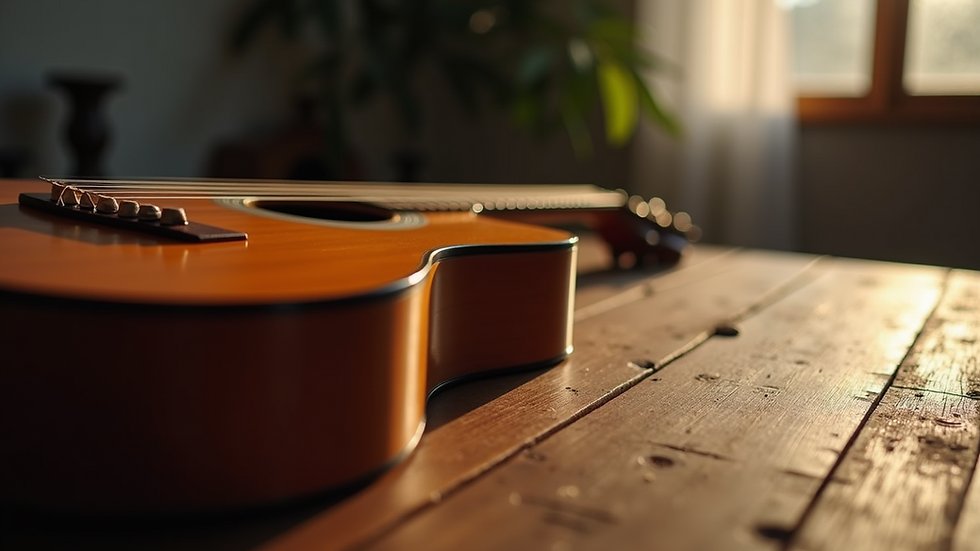🎵 10 Music Learning Starter Tips Every Beginner Should Know
- May 19, 2025
- 2 min read

Begin with clarity, grow with consistency, and let music become your second language.
Starting your journey in music is like learning to speak for the first time — it's unfamiliar, exciting, and deeply personal. Whether you're exploring vocals, piano, guitar, or any other form of musical expression, these 10 practical tips will help guide you through your early steps.
1. 🎯 Start With a Clear Intention
Are you learning music for fun, emotional expression, professional goals, or spiritual growth? Knowing your "why" helps you stay grounded during tough days and gives direction to your practice.
2. ⏳ Build a Simple Daily Practice Habit
It's better to practice for 15 minutes daily than 2 hours once a week. Focus on small wins — one new phrase, one exercise, or improving a note — and be consistent. Progress in music is gradual but cumulative.
3. 🎧 Train Your Ears from Day One
Music is as much about listening as it is about performing. Listen deeply to a variety of genres and try to recognize patterns like rhythm, melody, tone, and emotion. Active listening develops your musical intuition.
4. 🧘♀️ Use Breath and Body Awareness
For vocalists and instrumentalists alike, posture and breathing are essential. A relaxed body and calm breath lead to a better tone, smoother phrasing, and longer endurance. Incorporate simple breathwork and stretching into your warm-up.
5. 🔁 Repeat Without Rushing
Repetition builds muscle memory — but rushed repetition builds bad habits. Go slowly. Focus on quality over quantity. Let your brain and body fully absorb each note or movement.
6. 📓 Maintain a Music Learning Journal
Jot down what you practiced, what felt challenging, and what inspired you. This habit improves retention and creates a personal record of your journey that you’ll treasure over time.
7. 📹 Record Yourself Occasionally
It can feel awkward, but listening back helps you hear your tone, rhythm, and phrasing more objectively. Don't criticize — just observe and grow. It's a valuable feedback tool for all levels.
8. 🧠 Learn the Language of Music
Even a little theory goes a long way. Learn what scales, time signatures, or basic notations mean. Understanding how music works empowers you to be more creative and expressive.
9. 🤝 Seek Community and Mentorship
Learning with others brings encouragement and shared progress. Whether it's a local group, online class, or just a friend who loves music — connection deepens motivation and accelerates growth.
10. 🌿 Be Gentle With Yourself
Not every day will feel musical. Some days you'll feel stuck. That’s part of the process. Keep showing up, even when it’s hard. Trust that your dedication will lead to something beautiful.
🎶 Closing Thoughts
Music isn't a race. It's a lifelong journey of learning, feeling, and sharing. These tips are only a starting point — your path will be unique, shaped by your own voice, pace, and inspiration.
Let yourself grow slowly, like a raga at sunrise — unhurried, yet full of depth.



Comments